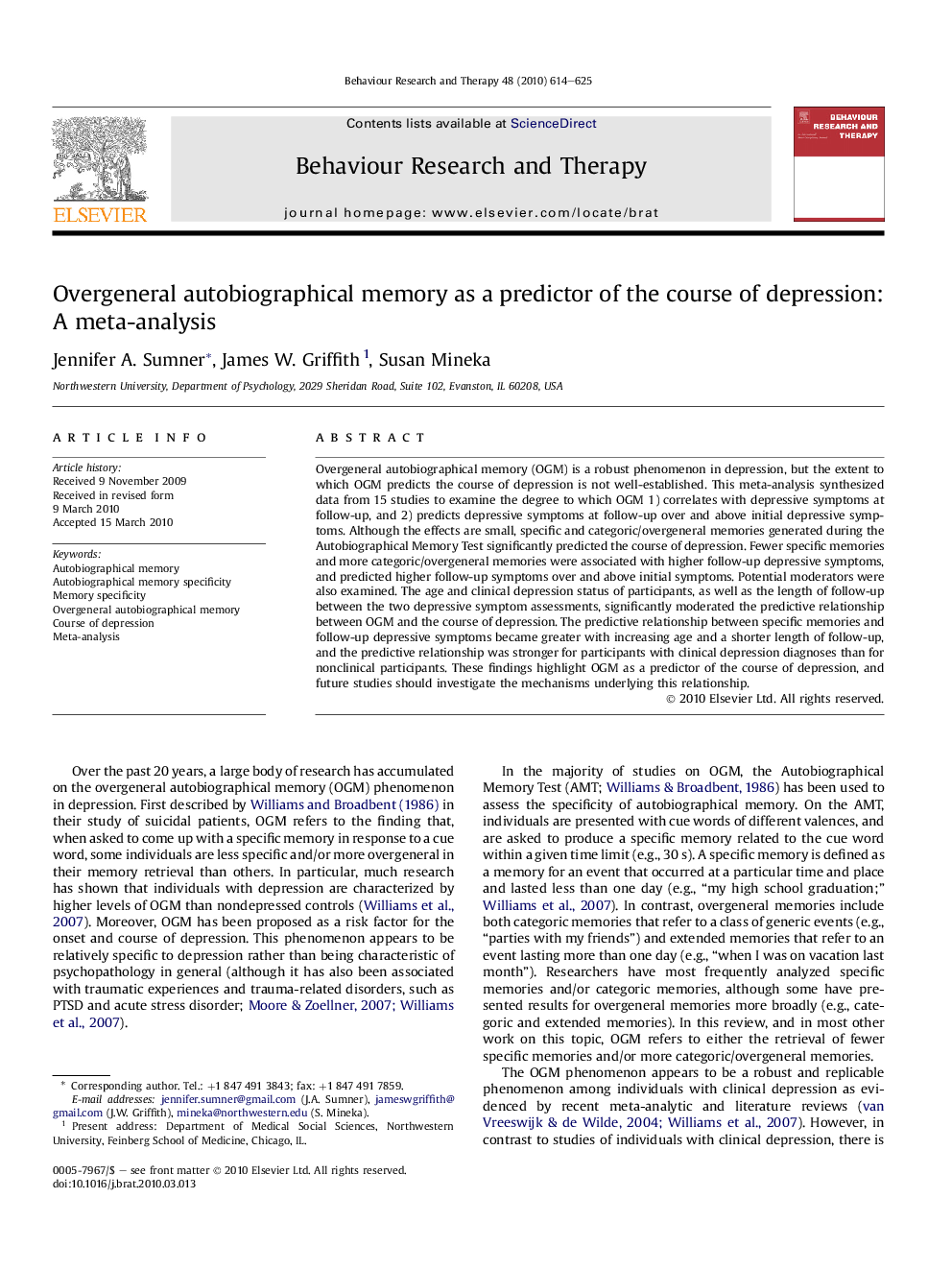| Article ID | Journal | Published Year | Pages | File Type |
|---|---|---|---|---|
| 902078 | Behaviour Research and Therapy | 2010 | 12 Pages |
Overgeneral autobiographical memory (OGM) is a robust phenomenon in depression, but the extent to which OGM predicts the course of depression is not well-established. This meta-analysis synthesized data from 15 studies to examine the degree to which OGM 1) correlates with depressive symptoms at follow-up, and 2) predicts depressive symptoms at follow-up over and above initial depressive symptoms. Although the effects are small, specific and categoric/overgeneral memories generated during the Autobiographical Memory Test significantly predicted the course of depression. Fewer specific memories and more categoric/overgeneral memories were associated with higher follow-up depressive symptoms, and predicted higher follow-up symptoms over and above initial symptoms. Potential moderators were also examined. The age and clinical depression status of participants, as well as the length of follow-up between the two depressive symptom assessments, significantly moderated the predictive relationship between OGM and the course of depression. The predictive relationship between specific memories and follow-up depressive symptoms became greater with increasing age and a shorter length of follow-up, and the predictive relationship was stronger for participants with clinical depression diagnoses than for nonclinical participants. These findings highlight OGM as a predictor of the course of depression, and future studies should investigate the mechanisms underlying this relationship.
